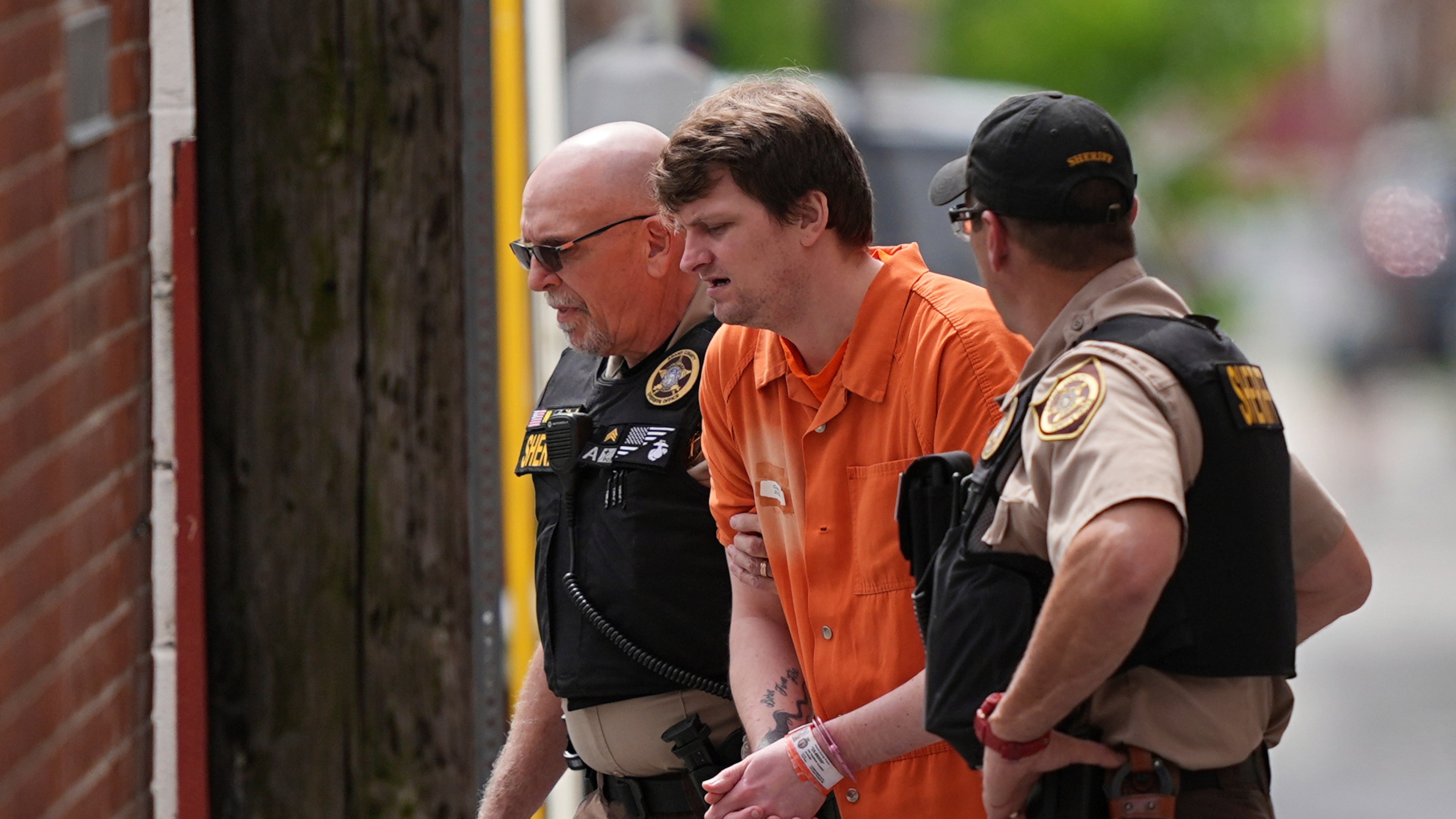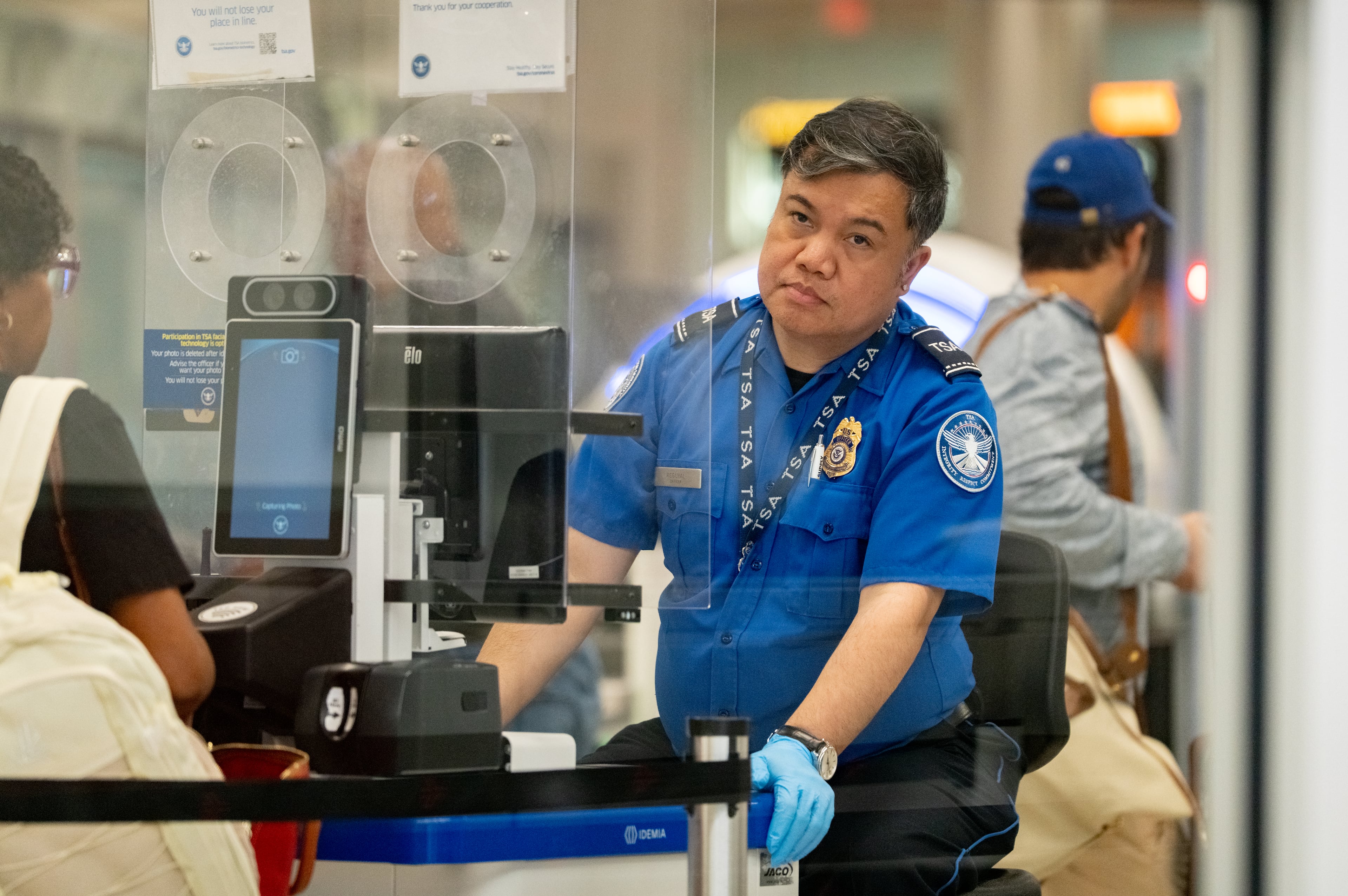Man who sent 'So I raped you' message is sentenced to 2 to 4 years for 2013 campus assault

GETTYSBURG, Pa. (AP) — A man who sent a Facebook message that said, “So I raped you,” to a woman he had sexually assaulted in college in 2013 was sentenced to two to four years in prison on Monday.
The sentence came more than a year after Ian Cleary was extradited back to Pennsylvania from France over the assault at Gettysburg College and nearly 12 years after the victim first went to police.
The judge took into account Cleary’s guilty plea, his remorse and his long history of mental illness in giving a sentence below state guidelines. Cleary, 32, said he sent the messages as part of a 12-step program, in hopes of seeking atonement.
Victim Shannon Keeler told the court on Monday that the messages only reopened wounds she had long carried over the assault, which went years without being prosecuted.
“The system meant to protect me protected you instead,” said Keeler, detailing in a powerful 10-minute impact statement the years she spent pursuing charges, which prosecutors are often reluctant to file in campus sexual assault cases.
“This isn’t just my story, this is the story of countless women,” she said.
Cleary faced a maximum of 10 years in prison for the attack, and the two sides had initially proposed a four- to eight-year sentence.
Andrea Levy, Keeler’s lawyer, said the sentence was “less than what we expected and certainly less than he deserves," but she said there was relief that the case was over.
Keeler told police that Cleary sneaked into her dorm on the eve of winter break, when few people were left on campus, then pushed his way into her room and assaulted her. She was an 18-year-old in her first semester on campus at the time.
Senior Judge Kevin Hess said that anyone with daughters or, like him, granddaughters in college would find the crime “horrifying.”
Nevertheless, he said, “the defendant has admitted his guilt, he’s come forward and even though 10 to 11 alarming years have passed in the meantime, we wouldn’t be here today but for his hope for some kind of forgiveness and contrition.”
Cleary left Gettysburg after the attack and ultimately finished college in Silicon Valley, California, where he’d grown up. He then got a master’s degree and worked for Tesla before moving overseas.
In 2019, he sent the Facebook message to Keeler, and she renewed her efforts with police and prosecutors after noticing them a few months later. In 2021, she shared her experience in an Associated Press story on the reluctance of prosecutors to pursue campus sex crimes.
Cleary was indicted weeks after the AP story was published, and following a three-year search, he was extradited from Metz, France, where he had been detained on a vagrancy-related charge in April 2024.
In court Monday, Cleary, standing just a few feet away, apologized to Keeler and his father.
“I’m committed to getting treatment for mental health and stuff like that as I go forward,” he said.
Cleary’s family members have declined to comment on the case and did not attend most of his court hearings.
Keeler, in interviews with the AP, described her repeated efforts to persuade authorities to press charges, starting hours after the assault.
“I had been thinking about this moment for 12 years,” Keeler said after seeing Cleary in court in July, when he pleaded guilty to second-degree sexual assault. She called it a surreal moment.
Authorities in the U.S. and Europe tried to track Cleary down after the indictment but seemed unable to follow his trail, online or otherwise, until his arrest in the unrelated case.
Defense lawyer John Abom maintained that Cleary was homeless at times and unaware of the charges. Adams County District Attorney Brian Sinnett said he had his doubts but could not prove that Cleary was on the run.
The AP typically does not name people who say they have been sexually assaulted unless they come forward publicly, as Keeler has done.
“The system that failed me a decade ago finally delivered accountability, but at a cost. Evidence was lost. Time passed,” she told the court Monday, noting that results of the rape kit she was given that night had been destroyed by the time of the indictment.
“My life moved on, but the impact never went away, not for me, not for my family, not for anyone who had to watch this unfold again and again,” she said.

